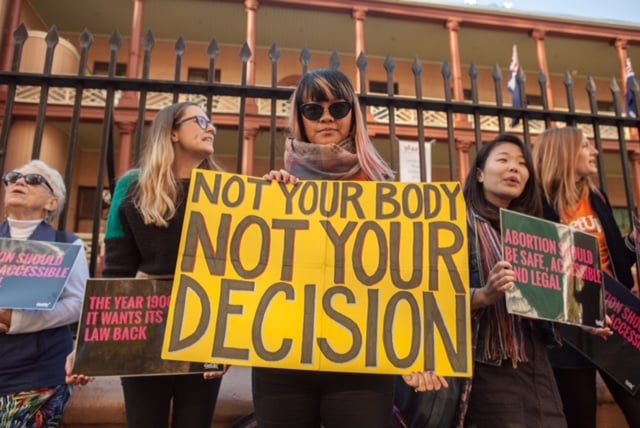
Overnight Queensland Parliament voted in favour of decriminalising abortion up to 22 weeks gestation. A vote that respects the right of women to have agency over their own body. To make decisions about family planning without risk of a seven-year prison sentence.
A vote that brings Australia’s most conservative state into the 21st century and in line with the rest of the country.
Almost.
South of the border, New South Wales remains an outlier. The sole state or territory where abortion remains entrenched in the criminal code. It’s clung to these laws ever since they were penned 118 years ago.
Today in the ‘First State’, a women can only legally obtain an abortion if her doctor determines that the pregnancy poses a serious danger to her physical or mental health. Not even instances of rape, incest or foetal abnormality are considered exceptions.
Should a woman be convicted of illegally procuring an abortion she faces up to ten years behind bars, and the same penalty applies to the doctor who performs the procedure.
While prosecution is relatively rare, it does happen. In 2017, a 28-year-old NSW woman was convicted and sentenced to a three-year good behaviour bond, after she procured an at-home medical abortion with pills she purchased online. According to The Sydney Morning Herald, the woman’s boyfriend had urged her to terminate the pregnancy.
The NSW parliament had an opportunity to toss out this archaic law last year, when Greens MP Mehreen Faruqi introduced a bill to have abortion removed from the state’s Crimes Act and common law.
It was voted down, 25 votes to 14.




























































































